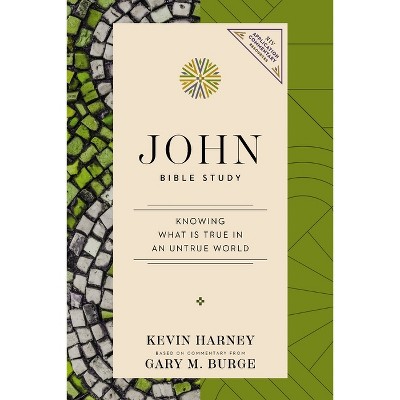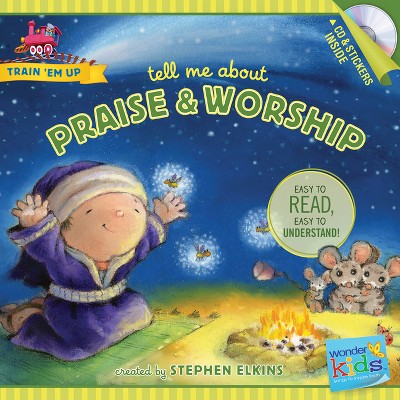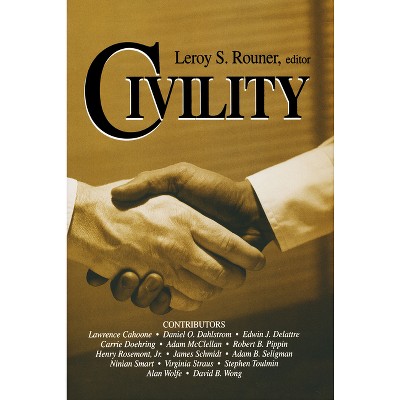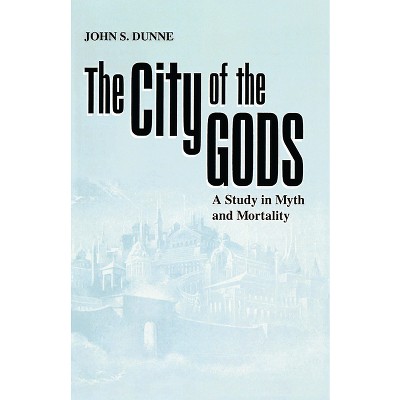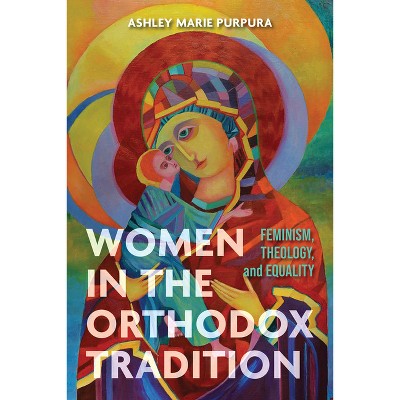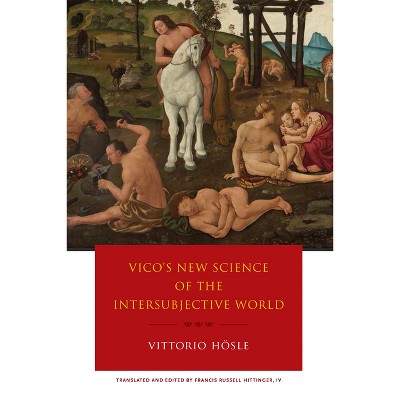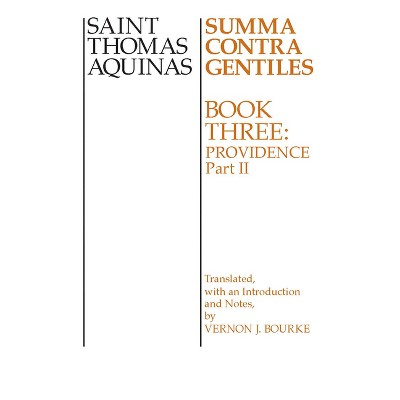Sponsored

Constructing Civility - by Richard S Park (Paperback)
In Stock
Sponsored
About this item
Highlights
- In Constructing Civility, Richard Park bridges Christian and Islamic political theologies on the basis of an Aristotelian ethics.
- About the Author: Richard S. Park is assistant professor of religion at Vanguard University.
- 282 Pages
- Religion + Beliefs, Comparative Religion
Description
About the Book
Park develops a framework for universally applicable public civility in multi-faith and multicultural contexts by combining concepts of Roman Catholicism and Islam.
Book Synopsis
In Constructing Civility, Richard Park bridges Christian and Islamic political theologies on the basis of an Aristotelian ethics. He argues that modern secularism entails ideological commitments that can work against the promotion of public civility in pluralistic societies. A corrective outlook on public life and the public sphere is necessary, an outlook that aligns with and recovers the notion of the human good. Park develops a framework for a universally applicable public civility in multifaith and multicultural contexts by engaging the central concepts of the "image of God" (imago Dei) and "human nature" (fitra) in Roman Catholicism and Islam.
The study begins with a critique of the social fragmentation and decline of public life found in modernity. Park's central contention is that the construction of public civility within Christian and Islamic political theologies is more promising and sustainable if it is reframed in terms of the human good rather than the common good. The book offers an illustration of the proposed framework of public civility in Mindanao, Philippines, an area that represents one of the longest-standing conflicts between Christian and Muslim communities. Park's sophisticated treatment brings together theology, philosophy, religious studies, intellectual history, and political theory, and will appeal to scholars in all of those fields.
Review Quotes
"Park offers very competently a compelling vision based on theology across two traditions for a restored 'Public Civility.'" --The Muslim World Book Review
"Constructing Civility offers a timely and imaginative corrective to the fragmentation of modern societies caught in the tussle between relativistic multiculturalism and reactionary nativism. Drawing on an incredible array of ancient wisdom and modern scholarship across several disciplines, Park points us toward the 'human good' as a universal normative vision with particular resonance within Catholicism and Islam--two traditions that the author treats, as a Protestant, with equal seriousness and respect, thus modeling his message of civility." --Judd Birdsall, managing director, Cambridge Institute on Religion & International Studies
"Citing sympathetic Catholic and Muslim philosophers, legal scholars, and ethicists, Park devotes well-crafted chapters to elaborating his claim that to be human is to be intrinsically relational, rational, and purposive. These inherent attributes of human nature, he submits, shape the way we interpret experience, history, and culture, derive universally binding moral principles, and establish the criteria for adjudicating competing applications of them." -- Reading Religion
"In this highly original book, Richard S. Park succeeds in redirecting political ethics towards a conception of the 'human good' as a means for reconstructing public civility. Displaying an impressive command of the literature across many disciplines and religions, he offers a way forward for peacebuilders as they seek what he calls 'dialogical friendships' across the world today. This carefully argued study is one of the most creative contributions to interfaith dialogue in a very long time." --Mark D. Chapman, University of Oxford
"Richard Park advances a crucial and variant aspect of public civility, based on an articulation of the human good that transcends tradition and offers conceptual resources and motivations for intercommunal engagement, which is stultified by a modernist view of the state that admits of no universal conception of the human self. Park correctly argues that without such an articulation, peace building in conflict-torn regions of the world is next to impossible." --Abdulaziz Sachedina, IIIT Chair in Islamic Studies, George Mason University
About the Author
Richard S. Park is assistant professor of religion at Vanguard University.
Shipping details
Return details
Frequently bought together


Trending Non-Fiction






